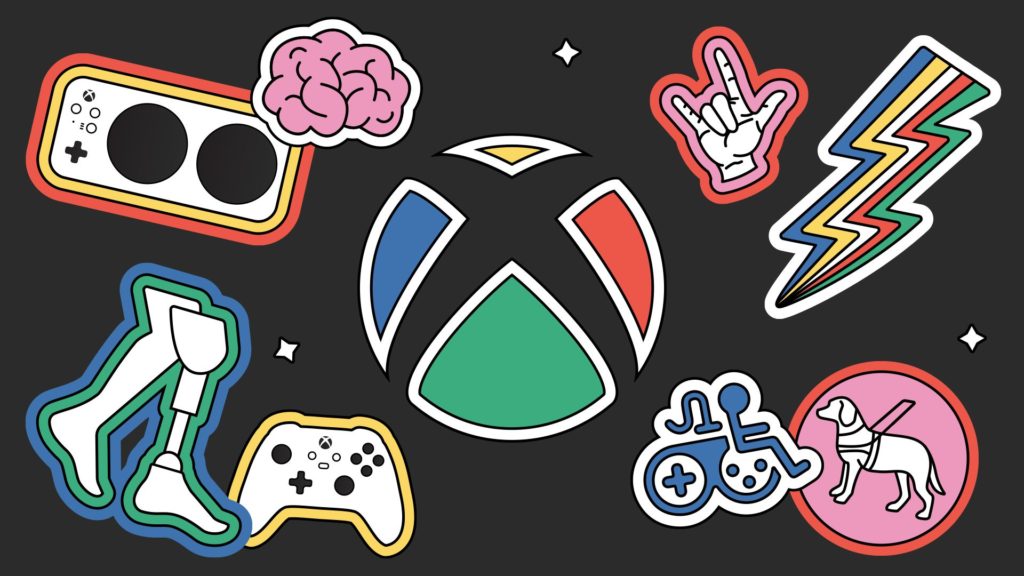
Provided Xbox
Is The Gaming World Truly Proud of Disabled Gamers?
After a long journey that began with a letter he penned in the hospital, a small blonde boy by the name of John set foot on freshly trimmed grass of a stadium—mere feet away from meeting his idol, Pokémon Champion Leon, at a championship match. It’s in John that disabled journalist Grant Stoner saw himself reflected, having spent weeks in the ICU ward as a child. His excitement about the miniseries John was featured in, Pokemon: Twilight Wings, was palpable and infectious even through a text reply to interview questions on a screen.
“It was done in such a way that didn’t lean into inspiration porn or pity,” Stoner explained. “It was just a young boy who was tired of being cooped up in a hospital, something I’ve definitely experienced.”
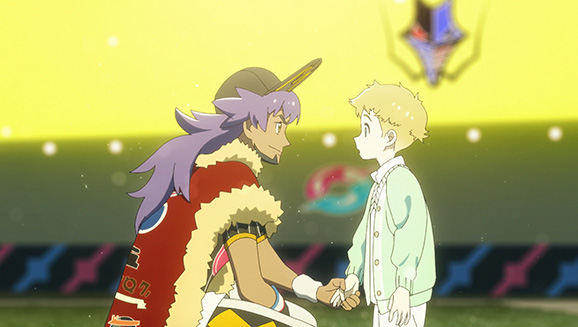
I’d invited Stoner, who was recently featured in a report by The Verge on tech and gaming journalism’s lack of full-time disabled staff, to give his two cents on the visibility of Disability Pride in the gaming industry. But it was the mental images of him and John that stuck with me most, as someone who also spent much of my childhood in the hospital. Except, instead of playing Pokemon games on my Game Boy as Stoner did, I was playing Barbie games.
The presence of video games like Barbie: Secret Agent in my formative years has made it a thrilling time for me to witness the progression of accessibility and disability representation in the gaming industry. In just a decade, we’ve gone from barely having subtitles in triple-A games, to The Last of Us Part 1’s remake becoming the first triple-A game to include audio narration for cinematic scenes.
Yet somehow, despite our progress, Disability Pride Month went largely unacknowledged this July — puzzling on its own, more so when considering the prevalence of games companies speaking up and taking political action this year. Gamers and studios have been supportive of social change in the past, mostly with LGBTQ+ Pride — with how Mass Effect weathered homophobic backlash and ended up with a bisexual Kaidan Alenko as a prime case study — but not to the degree in 2022. From the Russia-Ukraine war, to reproductive rights in the United States, to trans rights, gamers have since witnessed unapologetic declarations of each company’s politics and support for the vulnerable.
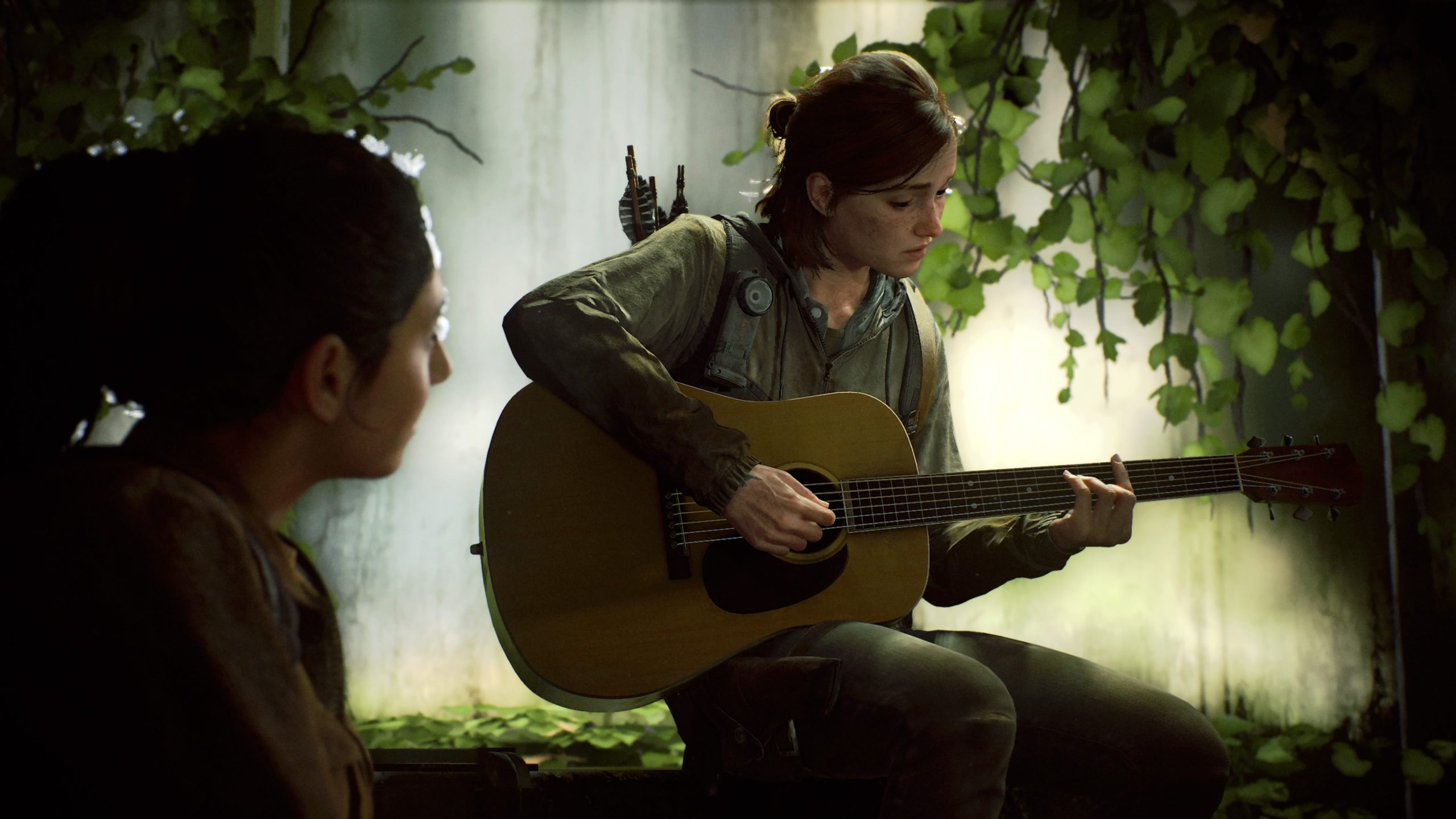
Before we get to the meat, we must rewind to 2020, when COVID-19 caused lockdowns worldwide. Back then, the digital infrastructures and protocols needed to handle students, workforces, and social events either couldn’t support their increased workload, or were non-existent. Non-disabled people suddenly saw why disability advocates begged for more accessibility in tech. At the same time, game consoles and video games sales soared. The Last of Us Part II launched with a major accessibility milestone in gaming, thanks to Naughty Dog developers meeting with blind advocate Brandon Cole in 2016. By the end of 2021, after events hosted online were made accessible and more triple-A games — Ubisoft’s Far Cry 6 and Xbox’s Forza Horizon 5 and Halo Infinite, to name a few — arrived with new accessibility milestones, disabled gamers wondered if, as Ubisoft’s Accessibility Design Lead Cherry Rae Thompson said as they recounted their decade-long journey in games accessibility at their talk for 2021’s Games Accessibility Conference (otherwise known as GAconf), “everyone’s finally listening!” It felt like we were past justifying accessibility and had entered a new era where we could focus on accessibility implementation.
Headlines reflected the cautious optimism of entering new territory, as well as suggestions for the future of accessibility advocacy in gaming. Early in 2022, Ruth Cassidy and I, both journalists with mobility disabilities, had features published on PCGamer and PCGamesN respectively, about the significance of 2021 in accessible gaming’s history. My piece was titled, “2021 was gaming accessibility’s best year — can 2022 outdo it?” Cassidy titled theirs, “Accessibility was more visible than ever in 2021, but not always in a way that’s helpful”. While I used a macro lens to touch on industry practices, and Cassidy zoomed in on Forza Horizon 5 and Halo Infinite as examples of game design challenges and how accessibility is marketed, our sentiments, like our features’ titles, were similar.
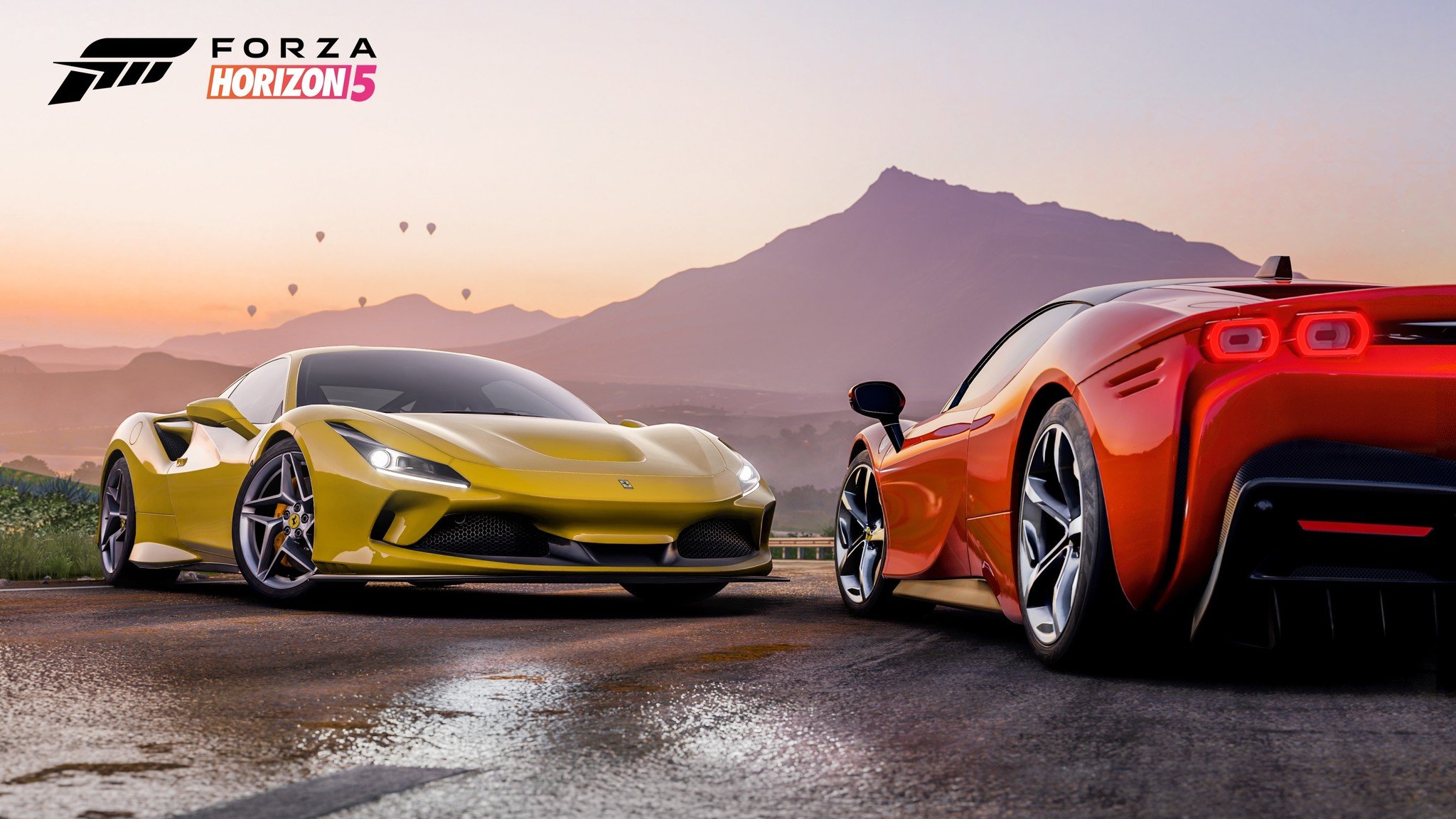
Expectations of increased disability visibility in the industry and acknowledgments of Disability Pride this year were therefore raised. Little did disabled gamers know we’d again have to explain accessibility’s purpose, beginning with Elden Ring reviving the corpse of the “accessibility vs. creator’s vision” debate (as if you can’t have both) and organisers deciding the Game Developers Conference (GDC) would be held in-person, amidst surges of COVID-19 infections globally, effectively barring disabled industry members from a core networking pillar in games development.
“A step backwards feels very different to not having yet stepped forwards,” Cassidy said about the lack of accessibility for this year’s events.
GDC wasn’t the sole event to drop the ball this year despite its accessibility in 2021; though hosted online, this year’s summer showcases lacked audio described versions of footage, captions that weren’t properly implemented or were missing altogether, and accessibility information for the games showcased that would help players decide if the games were accessible to them.
That said, there is a consistent exception to the letdowns for accessibility at events this year, even setting up accessible booths most recently at Gamescom: Xbox.
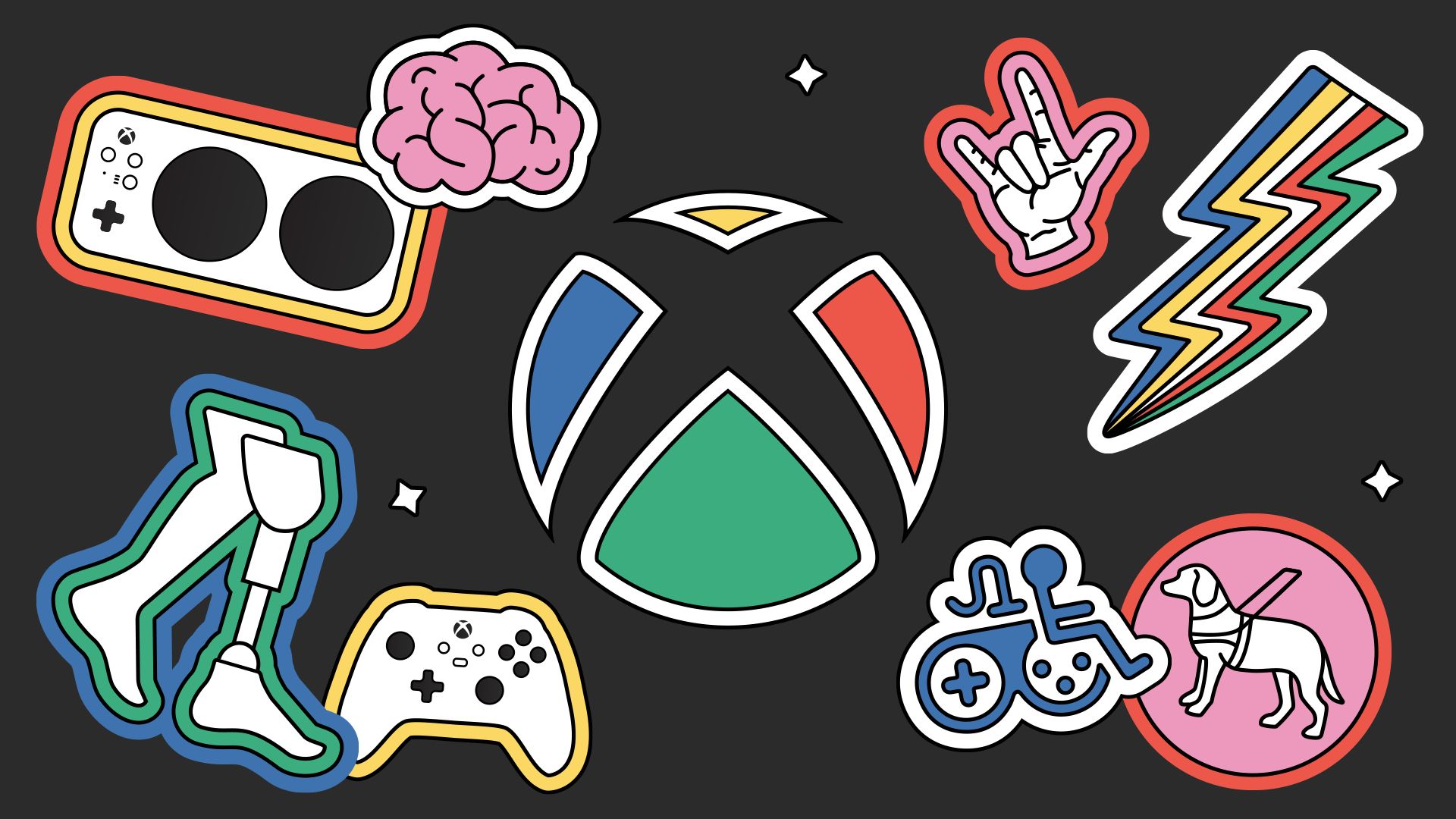
Xbox was also one of two publishers to acknowledge Disability Pride Month, with a blog post by Accessibility Program Manager Kaitlyn Jones (who is herself disabled), stating what Disability Pride means to herself and Xbox, accessibility plans for future and present, and spotlighting disability nonprofits and games with disability representation. The other publisher was Square Enix, who simply tweeted out their acknowledgement.
Accessibility consultant, journalist, and founder of Games Accessibility Nexus Antonio I. Martinez – for whom Forza Horizon 5 is special for letting him race along beautiful vistas in cool sports cars – pointed out that Xbox’s commitment to disabled gamers derives from years of work by teams with disabled staff and leadership. Support from Microsoft CEO Satya Nadella and Microsoft Gaming CEO Phil Spencer, however, has also been key.
“Nadella and Spencer have been very vocal and it shows,” Martinez told Uppercut. “I think if we saw the same level of support for accessibility in other publishers’ CEOs, their accessibility teams would have a greater impact.”
But at the end of the day, Microsoft/Xbox and Square Enix are businesses. It’s estimated there are 400 million disabled gamers. Courting us is an investment. Disability Pride “celebrations” could turn out as hollow as companies selling rainbow merch for LGBTQ+ Pride Month without doing much else, or worse, while sponsoring legislators or planning business goals that’ll adversely impact the community they’re “celebrating.” The plans certain triple-A publishers had for NFTs come to mind, given blockchain’s impact on climate change; an issue where disabled populations are often ignored despite higher risk of harm, according to a report released in June by McGill University in Canada.
Therefore, it’s important for gaming communities to celebrate Disability Pride ourselves, engage with developers on the topic, and look beyond July in normalizing Disability Pride as a concept.
As Senior Director of Development at AbleGamers Steven Spohn said on behalf of the nonprofit, in response to a request for comment: “Our society often focuses on disability in a negative light. It’s a pleasant change to have an opportunity to talk about disability in a positive light, celebrating life and allowing people to celebrate who they are.”

On community and industry levels, it’s important to first define what is a “positive light” to view disability in. What does it mean to “allow people to celebrate who they are”? For some disabled gamers who happen to be developers themselves, it’s acknowledging disability is simply a part of life.
“No one has a body that functions at 100% all of the time, or is indestructible against injury or immune to ageing,” said multiply-disabled digital accessibility specialist Littlenavi. “Disability is actually a great example of what it means to be human.”
Fully blind streamer and developer Florian Beijers AKA Zersiax, whose game library was limited to audio games until recent years, concurred. For the sake of developers, I then asked whether there are neglected areas of accessibility and what they are. He said, “Honestly, practically all of them in some sense. Accessibility settings are still very rare, standards are rarely followed, accessibility is often not part of the initial design, it’s not being taught in most computer science or game development courses, bootcamps or universities… It’s a huge systemic issue.”
While noting she’s not an intersectionality expert and that the term originated in Black communities, Littlenavi added, “One of the main things I wish more game developers would pay attention to is that there are a lot of people who have intersecting experiences of marginalization. My experience as a cis, white disabled person is very different than the experience of say, a Black disabled person. Even within our disabled identities, there are so many varying ways that disability can show up, so making sure we view accessibility through an intersectional and cross-disability lens is really important.”

Though game developers may continue to implement accessibility feedback, Cassidy believes games journalism has stopped finding accessibility “as news-y” and playing as large of a role in discussions in the aftermath of 2020’s hotly anticipated launches with accessibility milestones. “Those games were a ‘peg’ to hang accessibility coverage on, and so was everyone newly experiencing isolation for the first time,” they said.
A related issue expressed by many disabled journalists and reported on by The Verge article Stoner was quoted in is, publications aren’t hiring full-time disabled staff to cover accessibility, merely freelancers. “As long as mainstream outlets don’t have disabled people for these matters, as the norm and not as exceptions, we’ll never advance far enough,” Martinez said. “It makes no sense to ignore the knowledge and experience of the people who know about a matter.”
***
Like how Leon was there for John, games were there to help many disabled gamers escape, recover, and feel like ourselves again so we could be here today. It echoes through Littlenavi’s story of her ischemic stroke, which eventually led to her accessibility career. And mine. And Martinez’s story. And, I suspect, many in the COVID-19 pandemic. The question now is whether the industry and gaming communities will be there for us.
To me, John’s story illustrates why Disability Pride and disability representation should matter in gaming spaces: because when you’re battling for your life, whether in terms of illnesses or the legacy of systemic ableism — as Martinez and I are now, fighting against the healthcare policies designed without input from the disabled in our countries, in order to access critical treatments — you need a reminder that it’s worthwhile to live, not least surrounded by people like you.
If you like what we do here at Uppercut, consider supporting us on Patreon. Supporters at the $5+ tiers get access to written content early.






11 thoughts on “Is The Gaming World Truly Proud of Disabled Gamers?”